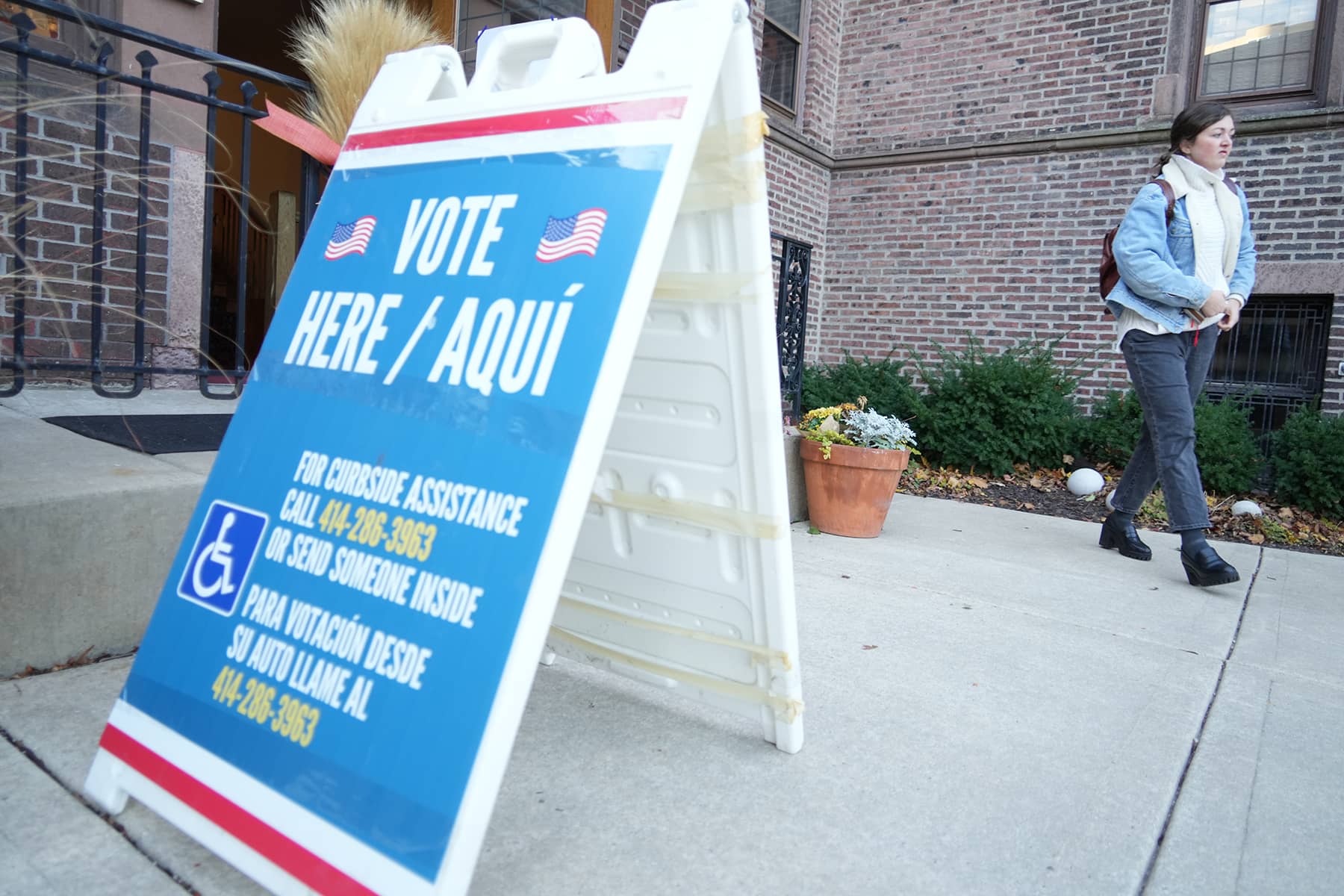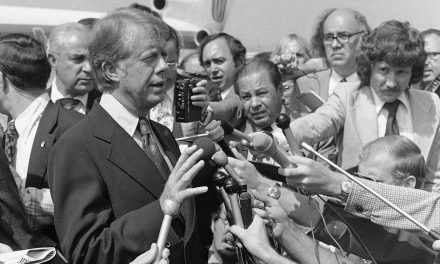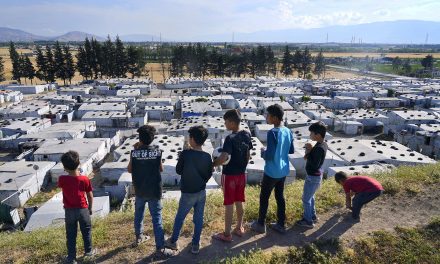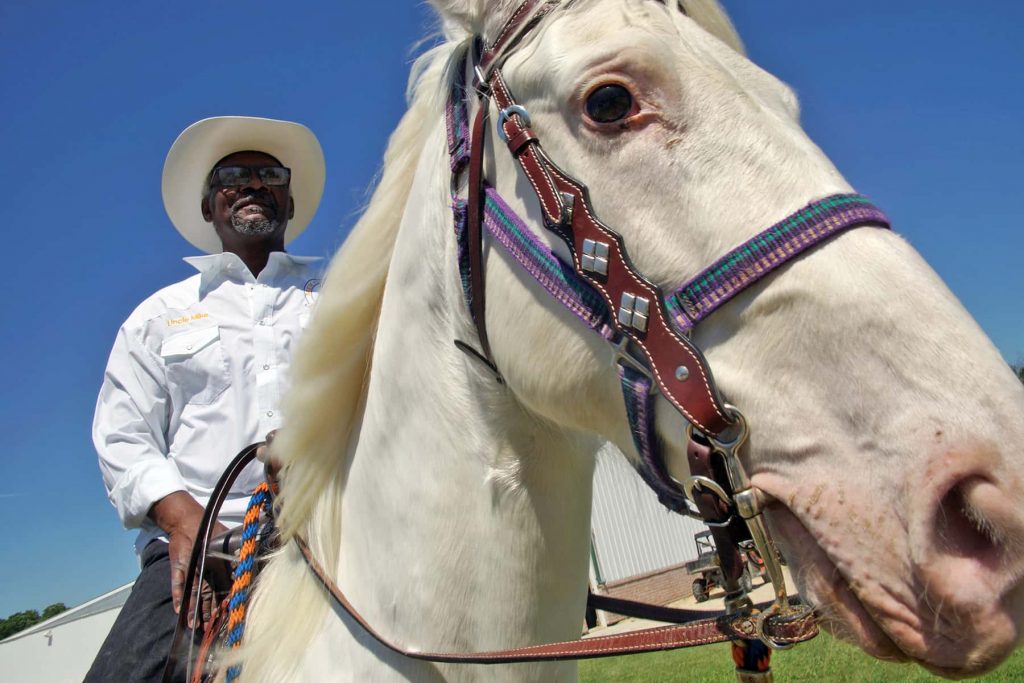
Before Election Day, anxiety mounted over potential chaos at the polls. Election officials warned about poll watchers who had been steeped in conspiracy theories falsely claiming that then-President Donald Trump did not actually lose the 2020 election.
Democrats and voting rights groups worried about the effects of new election laws, in some Republican-controlled states, that President Joe Biden decried as “Jim Crow 2.0.” Law enforcement agencies were monitoring possible threats at the polls.
Yet Election Day, and the weeks of early voting before it, went fairly smoothly. There were some reports of unruly poll watchers disrupting voting, but they were scattered. Groups of armed vigilantes began watching over a handful of ballot drop boxes in Arizona until a judge ordered them to stay far away to ensure they would not intimidate voters.
And while it might take months to figure out their full impact, GOP-backed voting laws enacted after the 2020 election did not appear to cause major disruptions the way they did during the March primary in Texas.
“The entire ecosystem in a lot of ways has become more resilient in the aftermath of 2020,” said Amber McReynolds, a former Denver elections director who advises a number of voting rights organizations. “There’s been a lot of effort on ensuring things went well.”
Even though some voting experts’ worst fears did not materialize, some voters still experienced the types of routine foul-ups that happen on a small scale in every election. Many of those fell disproportionately on Black and Hispanic voters.
“Things went better than expected,” said Amir Badat of the NAACP Legal Defense Fund. “But we have to say that with a caveat: Our expectations are low.”
Badat said his organization recorded long lines at various polling places from South Carolina to Texas.
There were particular problems in Harris County, Texas, which includes Houston. Shortages of paper ballots and at least one polling location opening late led to long lines and triggered an investigation of the predominantly Democratic county by the state’s Republican authorities.
The investigation is partly a reflection of how certain voting snafus on Election Day are increasingly falling on Republican voters, who have been discouraged from using mailed ballots or using early in-person voting by Trump and his allies. But it is a very different problem from what Texas had during its March primary.
Then, a controversial new voting law that increased the requirements on mail ballots led to about 13% of all such ballots being rejected, much higher compared with other elections. It was an ominous sign for a wave of new laws, passed after Trump’s loss to Biden and false claims about mail voting, but there have been no problems of that scale reported for the general election.
Texas changed the design of its mail ballots, which solved many of the problems voters had putting identifying information in the proper place. Other states that added regulations on voting didn’t appear to have widespread problems, though voting rights groups and analysts say it will take weeks of combing through data to find out the laws’ impacts.
The Brennan Center for Justice at the NYU School of Law is compiling data to determine whether new voting laws in states such as Georgia contributed to a drop in turnout among Black and Hispanic voters.
Preliminary figures show turnout was lower this year than in the last midterm election four years ago in Florida, Georgia, Iowa and Texas — four states that passed significant voting restrictions since the 2020 election — although there could be a number of reasons why.
“It’s difficult to judge, empirically, the kind of effect these laws have on turnout because so many factors go into turnout,” said Rick Hasen, an election law expert at the University of California, Los Angeles law school. “You also have plenty of exaggeration on the Democratic side that any kind of change in voting laws are going to cause some major effect on the election, which has been proven not to be the case.”
In Wisconsin, election officials are weighing whether changes to military absentee voting are needed after a top Milwaukee election official was charged with fraud in false requests for military absentee ballots just days before the November 8 election.
“It just is really not possible to engage in much fraudulent activity without being noticed very quickly,” said Barry Burden, a political science professor and director of the Elections Research Center at the University of Wisconsin-Madison.
Poll watchers were a significant concern of voting rights groups and election officials heading into Election Day. The representatives of the two major political parties are a key part of any secure election process, credentialed observers who can object to perceived violations of rules.
But this year, groups aligned with conspiracy theorists who challenged Biden’s 2020 victory recruited poll watchers heavily, and some states reported that aggressive volunteers caused disruptions during the primary. But there were fewer issues in November.
In North Carolina, where several counties had reported problems with poll watchers in the May primary, the state elections board reported 21 incidents of misbehavior at the polls in the general election, most during the early, in-person voting period and by members of campaigns rather than poll watchers. The observers were responsible for eight of the incidents.
Voting experts were pleasantly surprised there were not more problems with poll watchers, marking the second general election in a row when a feared threat of aggressive Republican observers did not materialize.
“This seems to be an increase over 2020. Is it a small increase? Yes,” said Michael McDonald, a political scientist at the University of Florida. “It’s still a dry run for 2024, and we can’t quite let down our guard.”
Voting rights groups say they are relieved their fears did not materialize, but they say threats to democracy remain on the horizon for 2024 — especially with Trump announcing that he’s running again. Wendy Weiser, a voting and elections expert at the Brennan Center, agreed that things overall went smoother than expected.
“By and large, sabotage didn’t happen,” Weiser said. “I don’t think that means we’re in the clear.”














